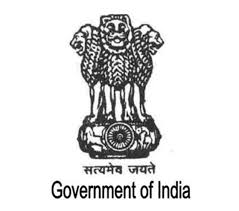The Indus Valley civilization, one of the world's oldest, flourished during the 3rd and 2nd millennia B.C. and extended into northwestern India. Aryan tribes from the northwest infiltrated the Indian subcontinent about 1500 B.C.; their merger with the earlier Dravidian inhabitants created the classical Indian culture. The Maurya Empire of the 4th and 3rd centuries B.C. - which reached its zenith under ASHOKA - united much of South Asia. The Golden Age ushered in by the Gupta dynasty (4th to 6th centuries A.D.) saw a flowering of Indian science, art, and culture. Islam spread across the subcontinent over a period of 700 years. In the 10th and 11th centuries, Turks and Afghans invaded India and established the Delhi Sultanate. In the early 16th century, the Emperor BABUR established the Mughal Dynasty, which ruled India for more than three centuries. European explorers began establishing footholds in India during the 16th century.
By the 19th century, Great Britain had become the dominant political power on the subcontinent. The British Indian Army played a vital role in both World Wars. Years of nonviolent resistance to British rule, led by Mohandas GANDHI and Jawaharlal NEHRU, eventually resulted in Indian independence, which was granted in 1947. Large-scale communal violence took place before and after the subcontinent partition into two separate states - India and Pakistan. The neighboring nations have fought three wars since independence, the last of which was in 1971 and resulted in East Pakistan becoming the separate nation of Bangladesh. India's nuclear weapons tests in 1998 emboldened Pakistan to conduct its own tests that same year. In November 2008, terrorists originating from Pakistan conducted a series of coordinated attacks in Mumbai, India's financial capital. Despite pressing problems such as significant overpopulation, environmental degradation, extensive poverty, and widespread corruption, economic growth following the launch of economic reforms in 1991 and a massive youthful population are driving India's emergence as a regional and global power.
India is a federal parliamentary republic.
Source: CIA World Factbook
Members:
Resources
Displaying 86 - 90 of 91Kerala Survey and Boundaries Act, 1961 (Act No. 37 of 1961).
This Act provides for the survey of soil and land and the demarcation of land with boundary marks. It also defines the powers of Survey Officers authorized to carry out land or soil survey.The Act prohibits registered holders of any land in the State to transfer or dispose of any land without presenting a survey map along with the title deeds for registration prepared by licensed surveyors.
Kerala Land Conservancy Act, 1957 (Act No. 8 of 1958).
This Act provides for the unauthorized occupation of Government lands.The Act stipulates that a licence issued by the Government shall be obtained in order to occupy land which is property of the Government, and that in order to remove earth, metal, laterite, lime-shell, etc. from Government land a permit must be obtained.The Act further provides for: punishments for occupying Government land without authorization; levies of assessment on occupied Government lands; penalties for destruction or appropriation of trees; etc.
Jammu and Kashmir Land Revenue Act 1996 (Act No. XII of 1996).
This Act provides for the making and maintenance of records-of-rights in land, the assessment and collection of the land revenue and other matters relating to land.The Act provides for classes and powers of Revenue Officers who shall be under the general superintendence and control of the Government.The Act further provides for: appeals; preparation of passbook for every land holder containing records of rights, agricultural holdings, transfer of rights, subsidies, etc.; rights of the Government in mines and minerals; provisions relating to Royal and reserved trees; etc.
Jammu and Kashmir Land Grants Act, 1960 (Act No. XXXVIII of 1960).
This Act empowers the Government to determine the extent of land available for building purposes and to grant land on lease for such purposes on the conditions specified in the text.The Act further provides for: powers to enhance ground rent in respect of subsisting leases; management and administration of lands; etc.
Jammu and Kashmir Prohibition on Conversion of Agricultural Land for Non-Agricultural Purposes Act, 2010.
This Act prohibits the conversion of agricultural land for non-agricultural purposes except with a written permission granted by the Government as provided for in the text.The Act provides for the establishment of the State Land Use Board and defines its powers and functions, which include: take stock of present land use in the State and lay down broad guidelines for optimum utilization of land; formulate policies and lay down broad guidelines to protect good agricultural lands against degradation; review forest laws with particular reference to the problems relating to the degradation and


